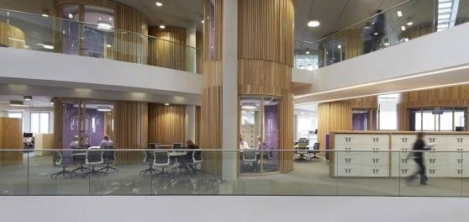December 15, 2014
Wearable tech will change the workplace in unexpected ways
 The idea that we are all about to be supplanted by a new generation of artificially intelligent robot overlords has been in the news a great deal recently, partly as a result of Stephen Hawking’s recent pessimistic intervention on the subject. Whatever the truth of this apocalyptic musing, a more imminent generation of tech products means we are already testing the law of unintended consequences with regard to the stuff we create to help us. As technology firms clamber over each other in their attempts to be the first to open up the lucrative frontiers of wearable tech, a range of understandable concerns have been raised about some of the more obvious potential problems of security and privacy. But if we have learned one thing about our relationship with technology over many years, it is that whatever we expect from it will usually be wrong, sometimes spectacularly so.
The idea that we are all about to be supplanted by a new generation of artificially intelligent robot overlords has been in the news a great deal recently, partly as a result of Stephen Hawking’s recent pessimistic intervention on the subject. Whatever the truth of this apocalyptic musing, a more imminent generation of tech products means we are already testing the law of unintended consequences with regard to the stuff we create to help us. As technology firms clamber over each other in their attempts to be the first to open up the lucrative frontiers of wearable tech, a range of understandable concerns have been raised about some of the more obvious potential problems of security and privacy. But if we have learned one thing about our relationship with technology over many years, it is that whatever we expect from it will usually be wrong, sometimes spectacularly so.


























December 17, 2014
Flexible working is best built on the foundations of a great office
by Charles Marks • Comment, Flexible working, Workplace design
(more…)